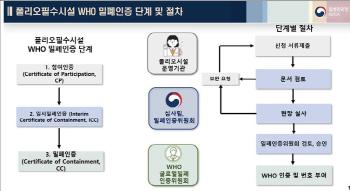Death → Will the timing of the end-of-life treatment be extended…half of last month's medical expenses
Aug 12, 2025
|
In this regard, a study found that if the decision to suspend life-sustaining treatment is one month before the death, medical expenses in the last month will be halved.
According to the National Health Insurance Corporation, the Korea Institute of Health Insurance revealed this fact in a recently released 'Effective Analysis and Improvement Measures for the Life-Lifelong Medical Decision System'.
Based on the big data of about 350,000 deaths in 2023, a precise comparative analysis of the end-of-life medical expenses of the group that stopped life-sustaining treatment (44,425) and the group that did not (44,425) showed that the average medical expenses for the last month of patients who decided to stop life-sustaining treatment 30 days before their death were about 4.6 million won. This is half of the general deceased group's medical expenses (about 9.1 million won) during the same period. The cost of direct life-sustaining treatment, such as CPR and ventilators, also fell to about 500,000 won when the decision was made a month ago, a quarter of the general death toll (1.89 million won).
It was found that about 73% of the deaths who implemented the suspension of life-sustaining treatment made the decision less than a month before they died. In particular, the group that decided to discontinue between the 8th and 30th days of death spent nearly twice as much as the general death, with medical expenses reaching 18 million won in the last month.
The end-of-life medical expenses were lower when the patient decided to suspend life-sustaining treatment than when the family decided.
In addition, in addition to the seven life-sustaining treatments (cardiopulmonary resuscitation, hemodialysis, anticancer drugs, ventilators, etc.), the life-sustaining treatment decision system had a low rate of prescription for expensive CT scans or high-nutrient fluids. In addition, while the intensive care unit utilization rate was low, the hospice utilization rate was higher.
The report found that pre-death medical costs would be lower if planned from a long-term perspective, rather than making a decision due to imminent death"It is necessary to establish a pre-care plan from an earlier point in time so that patients can make their own decisions through deliberation, and social discussions and system improvement should follow.", he suggested.
Even in the medical community such as the Korean Medical Association, the majority are in favor of this direction.
In a study conducted by Yonsei University's industry-academic cooperation group at the request of the Ministry of Health and Welfare last year, 22 out of 27 medical associations (81.5%) agreed to advance the timing of the suspension of life-sustaining treatment, and a revision to the law proposed by Nam In-soon, a lawmaker of the Democratic Party of Korea, was also submitted to the National Assembly last year.
Jung Eun-kyung, Minister of Health and Welfare, also said in a written answer to the confirmation hearing before taking office that `the implementation of the decision to suspend or suspend life-sustaining medical care is limited to the dying phase and the patient's right to self-determination and guarantee of best interests is limited, so we agree on the need to expand the scope of implementation (end of termination → termination)."
This article was translated by Naver AI translator.














